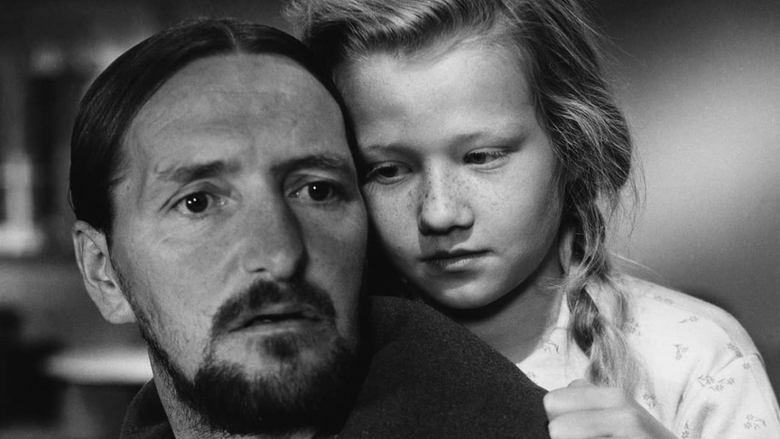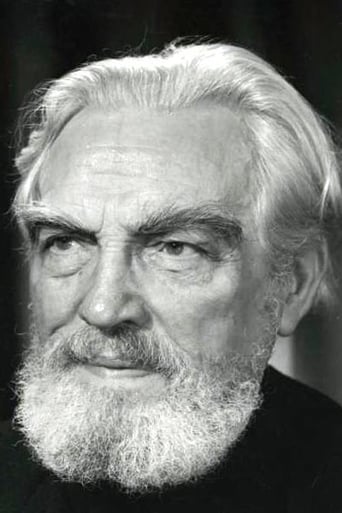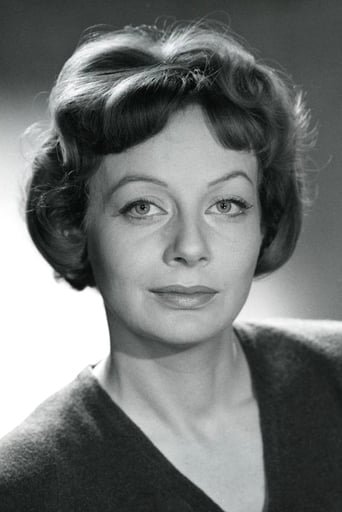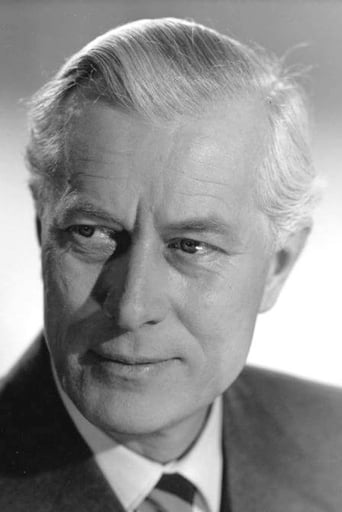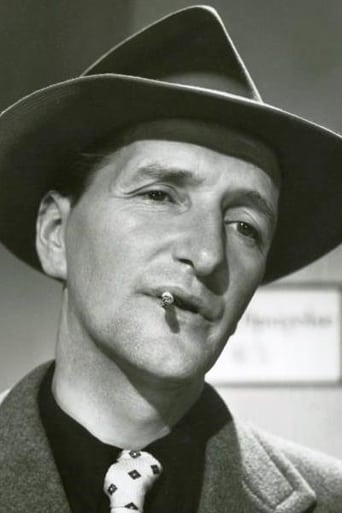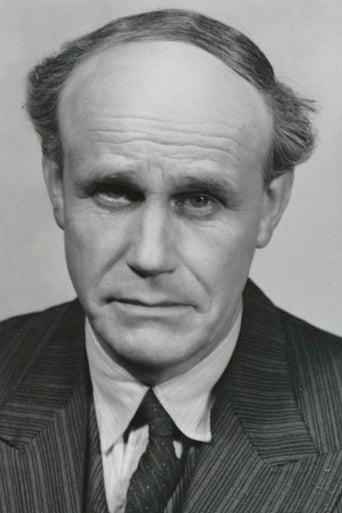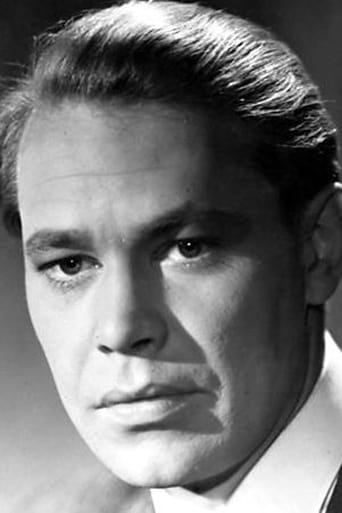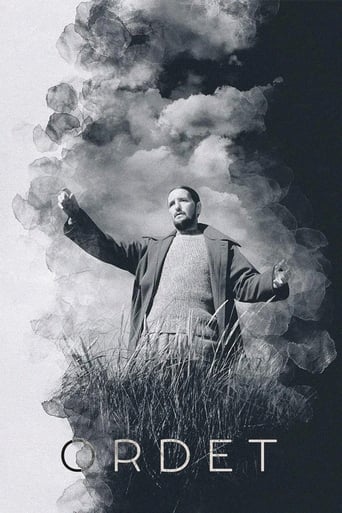
The three sons of devout Danish farmer Morten have widely disparate religious beliefs. Youngest son Anders shares his father's religion, but eldest son Mikkel has lost his faith, while middle child Johannes has become delusional and proclaims that he is Jesus Christ himself. When Mikkel's wife, Inger goes into a difficult childbirth, everyone's beliefs are put to the test.
Similar titles
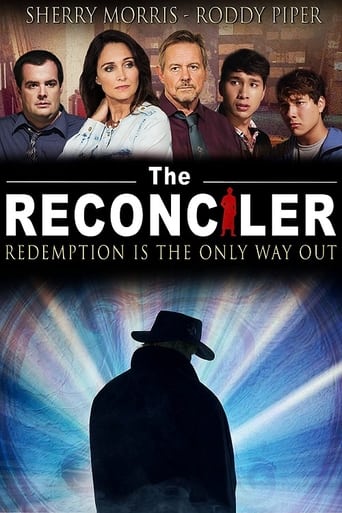
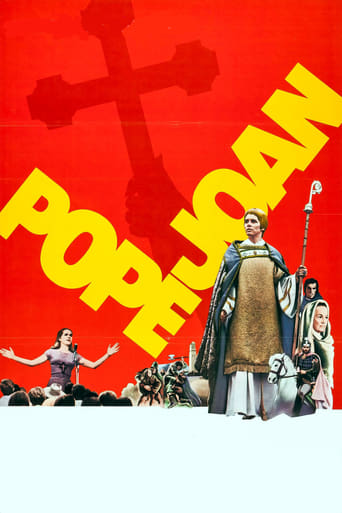
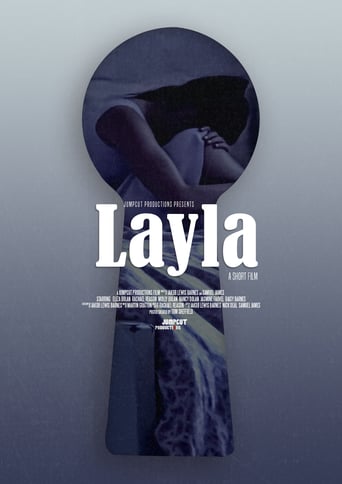
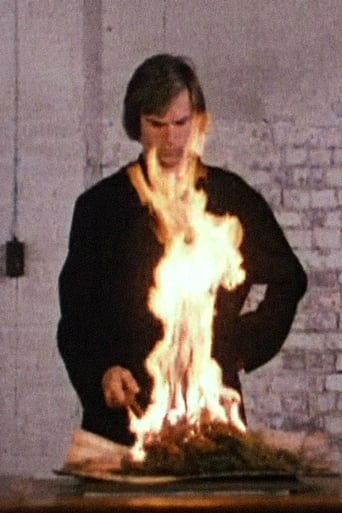
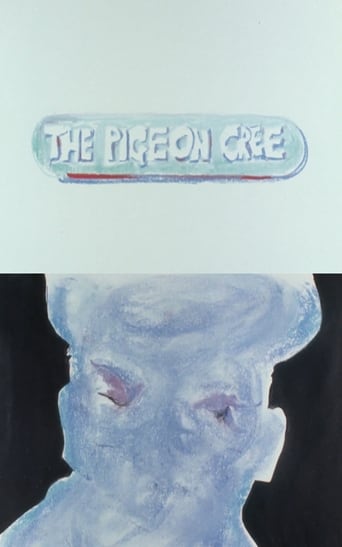
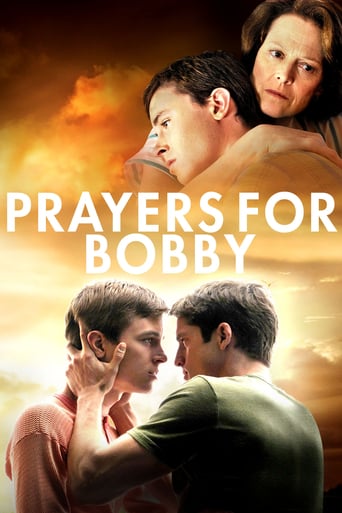
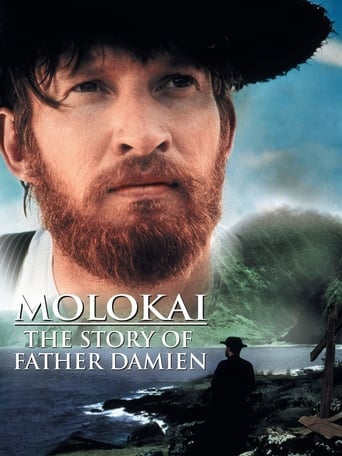
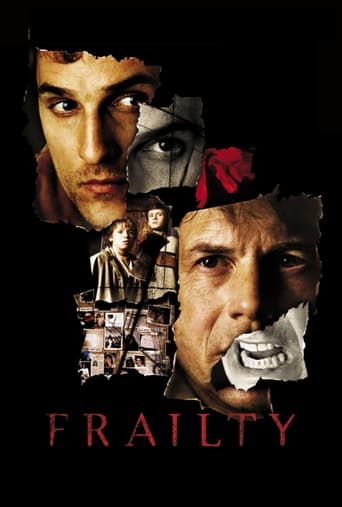
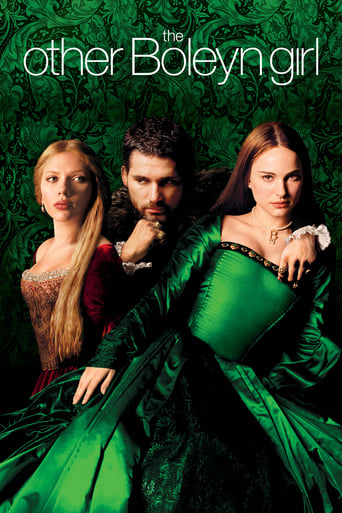

You May Also Like

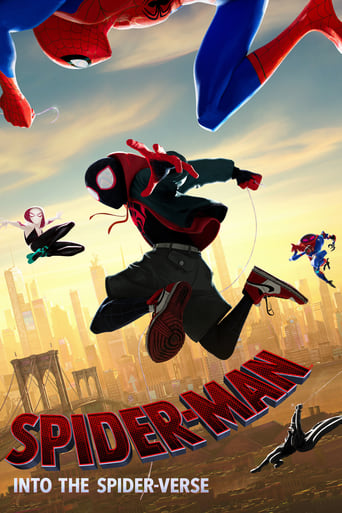
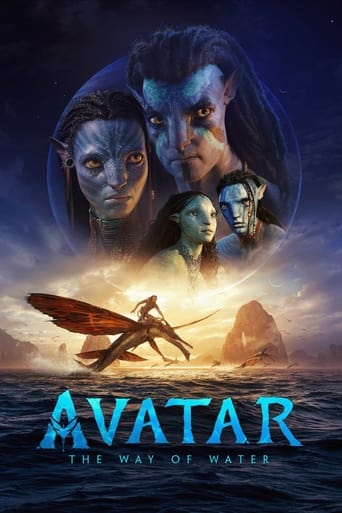
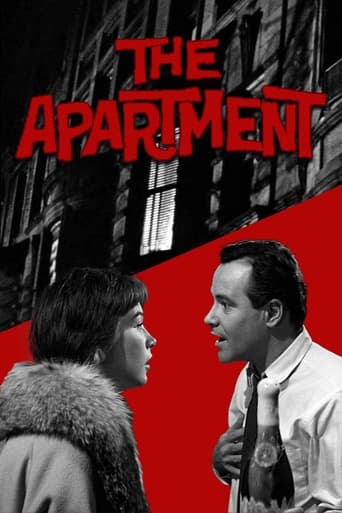
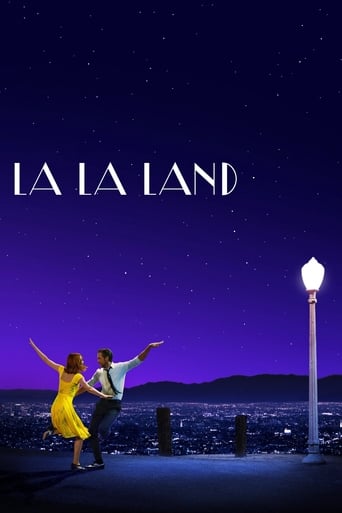
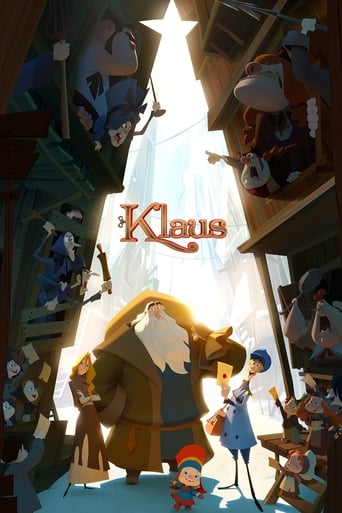


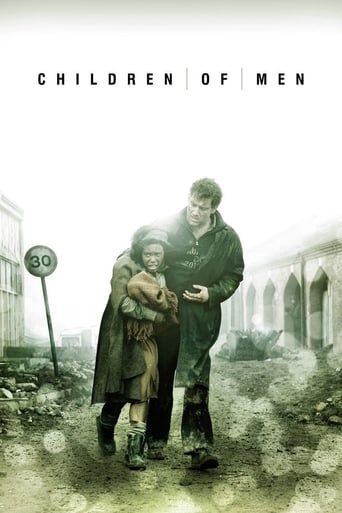

Reviews
I think this is a new genre that they're all sort of working their way through it and haven't got all the kinks worked out yet but it's a genre that works for me.
Great Film overall
This is a must-see and one of the best documentaries - and films - of this year.
After playing with our expectations, this turns out to be a very different sort of film.
Ordet can be slow moving at times. However, if you keep watching it, you will be in for a treat. It can easily suck you in and give you an amazing experience. I'm not sure if I'd call it suspenseful though like I've seen some people do. I think that simply calling it engaging and well-directed is a better description of my experience with this film.This film centers around the conflict between the Borgen family and the Peterson family. The devout widower Morten Borgen has 3 sons. The first one is named Johannes, who went insane and believes that he is Jesus Christ. His oldest son is named Mikkel, who despite having no faith, is happily married to his wife Inger, who is pregnant, but in poor health. His third son, Anders, is in love with the Peterson's daughter, Anne. However, her father, Peter, refuses Anders proposal as they're not of the same faith. A long night leads to conflict between the 2 families.The best scene in the film is when Morten tries to convince Peter to let Anders marry Anne. They have to wait for him to finish his prayer meeting with his congregation, and after everyone leaves, Morten and Peter talk alone. Their conversation starts out peaceful and mature at first as Morten raises several good points in hopes of convincing Peter. However, after Peter enrages him in a shocking twist, Morten wants nothing to do with him and he takes Anders and leaves their house. This scene gives the viewer a lot of insight into the character flaws of Peter and it gives the viewer a different impression of him. This scene lingered on with me after viewing the film for that reason.I also found Inger's pregnancy very disturbing and hard to watch. Even though the doctor's work was covered up by a sheet, I still found it to be a disturbing sequence. This scene was made disturbing by the doctor's facial expressions, and the pain that Inger showed throughout the ordeal. While the doctor operated on her, her house seemed lifeless as the lighting was very dim and their house seemed dull. This scene was also made powerful with the way how Inger's family reacted to her condition. They seemed depressed and worried throughout it. For instance, Morten didn't seem to be effected that much by Johannes' ramblings. He would slowly pace around his house all the while impatiently waiting for the doctor to finish his operation. Occasionally, he would talk to a family member who walked by him, but he seemed pretty lifeless throughout the sequence. This sequence was slow, and it took up a pretty big portion of the film. However, I wasn't bored by it, because of director Carl Theodor Dreyer's great directing.As great and engaging as the film can be at times, it can sometimes be a difficult wait getting to the good scenes, because the movie has pacing issues. These issues are present in its first act where it feels very slow moving and, for the most part, uninteresting, compared to the latter half. There were a couple interesting scenes in the first act such as the opening scene, but those scenes were very few and far in between. Some people complained that the first part of the film was boring. However, I wouldn't say that I was bored by it. It just made me grow impatient as I wanted to get to the good parts.Based on the reviews I've read of this film, I know that I'm in the vast minority here, but my other issue with the film is with its ending. I found it to be the weakest part of the film. Now, credit where credit is due, it was pretty surprising. Also, it gives a bit of ambiguity to Johannes' character. That's what I liked about its ending. As a whole, however, it didn't do much for me. I really hate the fake-death cliché that so many movies do. I like films which aren't afraid of having a tragic ending much more. On my first viewing of the film, I found Inger's 'death' to be surprising and sad. However, on my 2nd viewing, the pregnancy sequence didn't have that much of an impact on me as I already knew that she would survive. If the film would have had a tragic ending instead, that scene would've likely effected me a lot more.In conclusion, this was a well-made film that had the power to engage me quite a lot with Dreyer's great direction and writing. Dreyer is clearly a talented director as is evident with this film. Even though this film had a few flaws, I'm still interested in checking out more of Dreyer's films, because several of them made it onto Sight & Sounds' "Greatest Films of All Time" list in 2012. I'll make sure to check some of them out in the future.
Ordet is the second Dreyers film I've seen - the first being The Passion of Joan of Arc which at the time both amazed and scared me with its dark, brooding and sinister camera work and acting. I can only wonder what happened in between this and Ordet (I will soon find out though), but the latter surely makes a few steps backward in terms of almost everything I've seen in the Passion.I'm not a religious person and I can understand that this film may have a great appeal on a Christian (or, as someone else has put it, a quaker). It deals with Christianity, faith, doubt, god and two different ways how to approach it - one represents the "happy Christianity" of Morten, the father and per se the head chief of the Borgen family. The other one is the opposite, a very outdated, medieval way of embracing god through guilt and fear-of-burning-in-hell view of the other family, led by Peter the Tailor. The two views antagonize themselves, causing a conflict. There's something else though - Morten's son Johannes, who thinks is Jesus Christ and ultimately makes the two branches merge together and embrace each other's differences.The plot includes turning points that trigger and motivate some of the internal thoughts and actions of the protagonists. But as the plot progresses, it really does very little or nothing ,in fact, for the viewer, because everything here is really predictable. It makes sense that the movie is based on a play - the actors themselves look like they're in a play. Which would be good, if their acting wasn't so dull. I mean, really - they have the same exspression from start to finish (the film lasts more than 2 hours, mind you), they move from room to room like they are chained animals in a cage, they are empty, conveying the dialog in such a tiresome and dragged manner, that one can only wonder what the hell was Dreyer doing with them in the first place. The material of the dialog is also tiresome - I could just go read the Bible directly if I wanted endless usage of Christian terms all over. And the worse part of it is that it doesn't really lead anywhere - the praised-by-critics finale is anticipated a couple of times before - the resurrection is just the final nail in the coffin in the form of this movie. Its banality and ethereal pathos just shows you how bad the director is trying to get across the "point", that if you believe in god strong enough and you pray every day, then miracles will happen (including dead people raising back to life). Well, if that's the only thing that this movie can convey across, then it's really shallow, outdated and bizarre at most.Some folks can argue that it's allegoric, metaphoric and transcends the general conception of Christian religion, meaning of life and death. Not good enough for me. It has been done so much better and in a lesser self indulgent way in so many other films - somebody here mentions Bergman's Winter Light and I agree completely. The latter is an original, intelligent and non pretentious movie that deals with pretty much the same themes as Ordet, but with a whole new prospective and deep interest in the matter. Ordet is just pale in comparison, on all levels. The other one being Tarkovsky's Andrei Rublev, though its main theme is the artist and the movie is set in the 12th century, it doesn't poke the viewer with endless talk about Christian guilt and morality as Ordet does. Some may also argue that the views expressed in Ordet are just reflections of that time and so it cannot be condemned or viewed as useless or/and outdated. Well, recently I saw Fritz Lang's M, which was made 24 years before Ordet and it didn't even crossed my mind to think it was outdated at any rate. So yeah, Ordet is the "problem", not the time it was made or the topic it deals with.When I see a movie where the lead protagonist talks to a little girl whose mother is on the death bed and says to her that it's better that her mother is in heaven (meaning is earthly dead), because that means she will always watch over her from a distant, undefined "above", than here on Earth with her, I just feel insulted and very, very sorry for the little girl. At times it really seems like the film is trying to sell some sort of medieval Christian brainwash/phantasmagoric fantasy to the viewer and that's something I cannot digest.It's still an art film though - the lighting and filming are still very good, at moments even amazing. But the acting and overall ridicule views expressed within (that drag for two hours), make this film a cheap try at finding the meaning of life, death, god, faith and doubt. May be good or even excellent for some people, but I'm pretty much out of this club.
This is a good movie to watch yet not considerably one of the best, among masterpieces, it lacks some dramatic tension but is certainly one of the best movies about faith.Actually this movie shakes once more the old way of living like a believer but not totally believing, like a "half believer". Talk to a normal guy nowadays about the action of this movie and he'll laugh, talk to someone about miracles and will mock you. That's why this movie is so great because it brings right in front of you one of the most difficult topics in a Christian's faith: miracles. And most of us like to mention only as existed once a man who did miracles, to consider the power of faith as being in the past and kept within the time of biblical story, not as a truly, really fact that still exists. This movie is about discovering the true faith and living by faith.
Denmark's Carl Theodor Dreyer was one of the great auteurs of early cinema, and such masterpieces as Vampyr and Day Of Wrath attest to that fact. Many critics, however, have hailed either his earlier silent film, The Passion Of Joan Of Arc, or his later Ordet (The Word) as his greatest work, and while I've never seen the earlier film in a full restoration, having just watched Ordet I can say, uncategorically, that it is not in a league with Vampyr nor Day Of Wrath. This is not to say that the film is a bad one, but it is nowhere near a great one . Ordet is not even a direct allegory on evil and complicity with it, as was the earlier Day Of Wrath, made during the occupation. In fact, it is not really an allegory at all, merely a simple tale of faith, and a none too original one, at that. Its ending is telegraphed all throughout the film. Its ultimate message, about the power of faith over strict rationality, is also not a new one, and its rendering here is not in the least powerful. Compared to, say, Ingmar Bergman's Winter Light, made only a few years later, this film pales in every measure of comparison. That later film was loaded with vitality, even as it was a despairing film. Despite this film's seemingly upbeat ending (resurrection is a good thing, right?), it has none of the verve nor power Bergman's film has. Its characters never resonate with the viewer the way Bergman's tormented pastor and his scorned lover do, in their anomic faith and intellect, and their probing of it. Nor were Munk nor Dreyer the writers that Bergman is. And, compared to Day Of Wrath's ending, wherein that film's female protagonist's descent, into the insanity of feeling she has become a witch, haunts a viewer with regret, the resurrection of Inger seems too pat an ending, and not too challenging in terms of religion, nor science. To answer, though, that this is because this film is about faith and its necessity doubt, as framed by Kierkegaard, therefore one must suspend disbelief to 'get it', is to let Dreyer's own filmic and writing failures off the hook because those things he was in control of also fail, despite or because of that belief system. I'm sure that there are many critics who have been, and are, more than willing to grant the director such favor, as I read enough of them in my researching the critical reception this film got, but you'll have to look elsewhere for such poor critique. If the Internet bores you, try the books of Leonard Maltin or Roger Ebert. I'll be rewatching Vampyr in the meantime. I need its fillip after Ordet.
Top Streaming Movies











